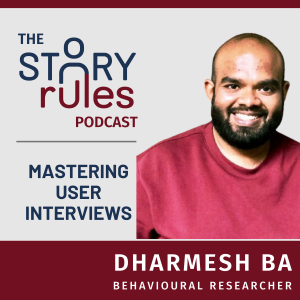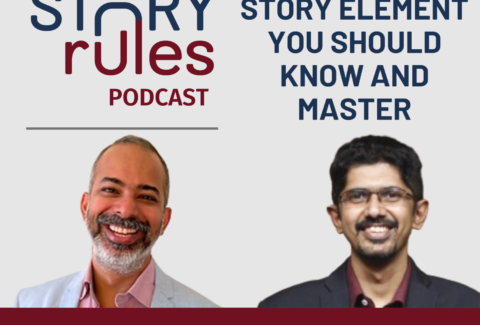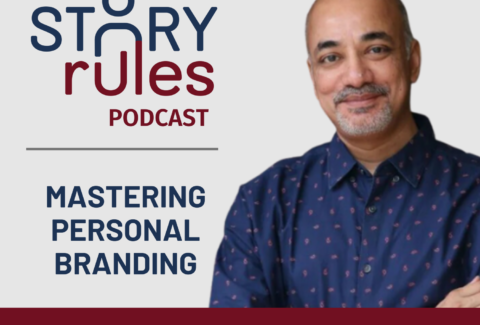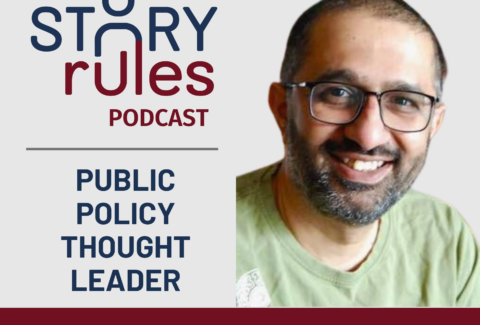How to ace interviews with better storytelling

How to ace interviews with better storytelling
It’s the big day. Wearing your best formals, you reach the venue 20 minutes before time. You make small talk with the interview co-ordinator, take a few deep breaths, and when it’s your turn, stride purposefully into the meeting room. A firm handshake, initial pleasantries – you’re all set to rock the stage.
And then trouble starts. First up is that infuriatingly innocuous question, “Tell me about yourself”, followed by “Can you walk us through Project A” and then the dreaded, “Can you give us an example of a situation when you showed leadership”…
For most of these questions, you start off well, but inevitably find yourself in the “Rambling Zone” (RZ). The RZ is that chakravyuha that you can enter – but are unable to exit, finding yourself stuck in the maze.
Surely, there’s got to be a better way.
There is. It’s called storytelling.
Four types of questions
Let’s categorise all interview questions into 4 types:
- Professional achievements/Experience: Education, work experience, flagship projects.
- Behavioural events: Specific instances to showcase your strengths, attributes, personality traits
- Technical competence/problem solving: Questions about your subject matter, domain or typical problem-solving questions (e.g. estimate how many petrol pumps in Mumbai)
- Personal questions: Straightforward questions such as place of origin, your interests, extra-curricular achievements etc.
While categories 3 and 4 may also need some storytelling intervention, for this post, we will focus on 1 and 2 above – specifically on three frequently asked questions:
- Tell us about yourself/give an overview of your professional career
- Take us through a specific project/major work related achievement
- Narrate an instance when you demonstrated Trait A
Let’s dive into each one and see how you can improve your responses with better storytelling.
1. Professional overview/’Tell me about yourself’
This innocuous question presents the biggest risk of falling into the Rambling Zone – especially if you answer chronologically. There’s the dreaded possibility of the interviewer getting into a most random alleyway of your career (for e.g. that inconsequential internship you did at a media company, when you were 19) and spending 5 precious minutes asking inane questions about it. Why give such an opportunity? You need to control and steer the discussion towards your strengths.
Ah, your strengths. Let’s dive into that a bit. Take a piece of paper and write down the following:
- The most critical abilities, skills and traits (let’s call them competencies) that the role requires
- Your competencies
- (If possible) Competencies of other candidates for the role
Once you have the lists, categorise them as below:
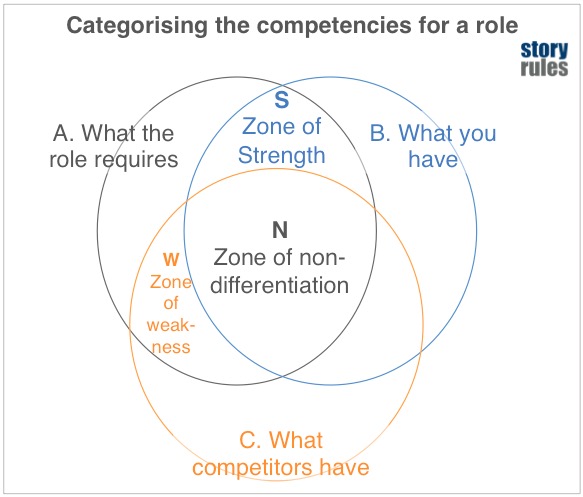
The objective of your answer to the introductory question (or even other questions for that matter) should be to nudge it in the direction of Zone S above – your unique strengths.
Lets take an example. Say Swara is interviewing for the post of an L&D Head at Abacus Tech. Here’s how her three lists look like:
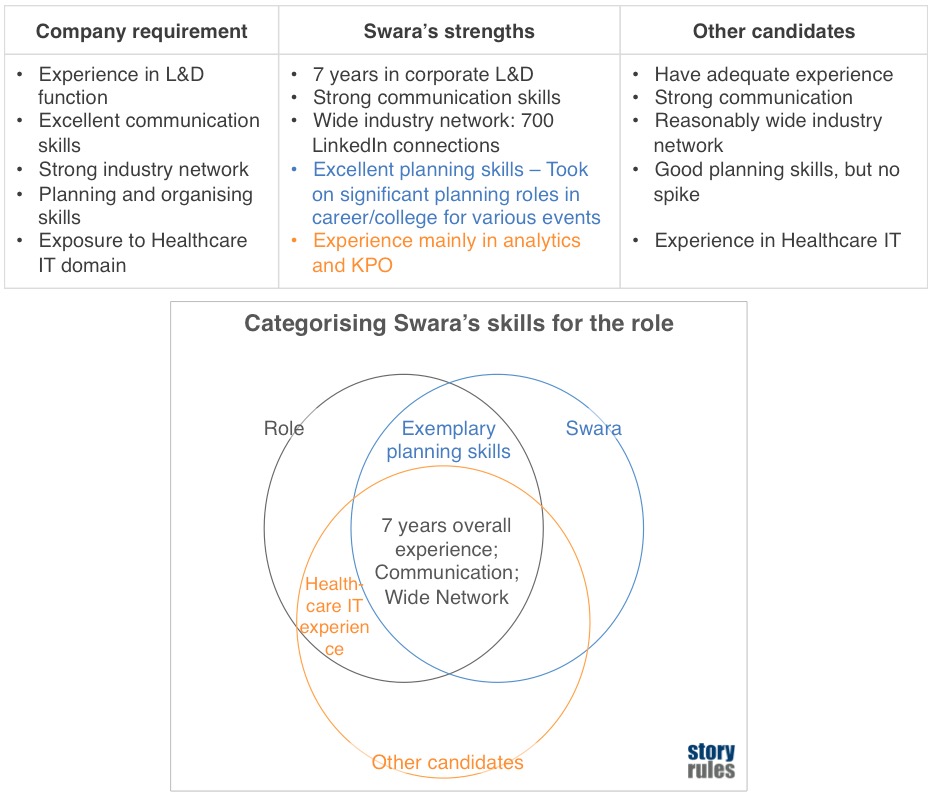
Clearly Swara needs to highlight her excellent planning skills apart from the other competencies the role needs. Of course this has to be done subtly, especially as an answer to the “Tell me about yourself” question. For instance, it could go like this:
“I’ve grown up mainly in Nagpur and Pune and graduated from Symbiosis in 2010. I joined ABC Analytics from campus and it’s been a great 7 years so far. I really enjoy the process of connecting with business, understanding their learning needs and putting together impactful programs. One flagship program which I anchored was the annual Analytics University – in which all the 200 employees gathered at a common venue. It was like Woodstock for learning! The logistics were crazy, but I really enjoyed it”
With that opening, guess what’s likely to be the follow-up question: “Hm, tell us more about this Analytics University”. Aaaaannd, snap.
Note that it must be a competency that is essential for the role. You may be a great ‘creative thinker’ but that may not be critical for a ‘Quality assessment’ or ‘Accounting’ type of role. So choose wisely.
2. Big project/major work related achievement
When it comes to speaking about your ‘greatest hits’ you may assume that you don’t need any preparation. You’ve worked on these projects for several months – surely you can speak extempore for a few minutes on it? You can, but guess where it’s likely to head – the RZ.
Your major achievements deserve their story to be told well. Prepare and script the same, by following this structure – I call it the 5Cs:
- Context: A quick context of the key stakeholders (clients, your company, key people) involved
- Conflict: What was the problem or conflict faced and more importantly what were the stakes? Read this post on how the principle of showcasing the conflict was used to perfection by Bollywood’s biggest hit.
- Challenges and Counters: The initial plan, the challenges faced during execution and your response. It might be useful here to give a specific example of a challenge faced.
- Conclusion: The outcome and the key lessons learnt
- Condense: Finally, craft a one-line summary for the narrative, which could be your story’s starting point.
Using this structure, let’s get back to Swara and see how she could answer this question:
“Well, my most difficult project was the Analytics University organsised in 2017; given the project’s sheer size and complexity, I had to rely on meticulous planning to ensure its success.
After a successful first edition in 2016, ABC Analytics wanted to organise a bigger Analytics University in 2017. Everyone – from the junior-most analyst to the CEO, 202 folks in all – were to participate. A venue was chosen at a popular resort in Goa, and the CEO sent the invite email two months in advance. Expectations were sky-high and all eyes were upon us – the L&D team – to deliver now.
As you might expect for an event of this magnitude, we faced many challenges. The three main ones were: defining the right agenda, managing logistics and ensuring sustainability.
- For the agenda, our main concern was to ensure full ownership by business. So we formed four teams with representation from different business groups (with one L&D person to anchor each team) four months in advance. While four months seems a lot, we were wary that if we tried to match team members schedules for each interaction, it could result in a lot of email ping-pong and little progress. So the L&D reps did two things: whenever the team met, we would gently but firmly push for closure on key decisions. In addition, we did a lot of one-on-one calls with the members to get buy-in.
- For logistics, the key issue was Murphy’s law! Missed flights or malfunctioning projectors could have derailed a key session. Here our approach was to build redundancy or have Plan Bs where possible. For example, during one key external speaker’s session, with all 200 employees in attendance in the ball room, the hotel’s projector conked off. Thankfully we had a portable projector from office, which saved the day. The look on the CEO’s face – when he saw the presentation back on the screen – was priceless!
- For post-event sustainability of learnings, we had chosen anchors in key business and functional groups. They would organise internal meet-ups once a month for the next 3 months to share experiences of implementation of the sessions’ learnings. The CEO would be present in these meet-ups.
Overall, with the right planning and support from business, the event was a resounding success. I still remember the thunderous applause when the Chairman presented our team a special memento for our work.”
3. Behavioural event questions
The behavioural event questions are subsets of the ‘Big Project’ question. It is typically worded as “Can you tell us an instance when you demonstrated Competency X”. This type of question is a favourite with many interviewers who want to see evidence of specific competencies.
Typically our approach to such questions is to think on our feet or request for some time to dredge our memories. Don’t do that. It is difficult to remember the right story in the heat of the interview; and even if you do, it is difficult to impactfully articulate it and avoid the RZ. Instead do the following:
- Start preparing a bank of stories. Note down remarkable work events (that demonstrate desired competencies) as and when they happen; or as and when you remember some from the past. I recommend Evernote to jot down these stories – the stories remain in one place, you can tag them by the specific competencies, and you can organise your stories using the nifty ‘Notebooks’ feature.
- While noting down, edit the stories for impact – with a balance of brevity and detail. The brevity needs to come in the context setting and the detail should come in the challenge and how you responded. You can use a shorter version of the 5Cs structure described above. Especially focus on any aspect which was surprising or norm-breaking.
- Before a big interview, go through your ‘Story Bank’ and rehearse the relevant ones. You might surprise your interviewer with how well you recollect an incident that happened years ago. (if they ask, go ahead and share your modus operandi – it’ll only increase your stature for being prepared and organised)
Other tips
Some additional questions you may have:
- What if I’m just starting out and don’t have any unique strengths?
You haven’t thought hard enough! If you are a fresher and fret about lack of experience, remember, others are in the same boat. Maybe you don’t have standout grades, but look deeper. Perhaps the job requires someone with initiative, and you demonstrated tons of that when you did a fund-raising internship for an NGO. Go beyond your standard academic achievements and talk about times when you shined in life – which showed any traits that your employer may value.
Also, it is useful to be self-aware. Take a personality test to know yourself better. We used to take the MBTI, but Adam Grant frowned upon it, so the recommended ones are the Big Five or the HEXACO.
- What if the discussion veers to Zone W – the weakness area?
If Murphy is active on your interview day, you will get that question on your area of weakness. Fret not, you can still save the day by putting the factor in perspective, juxtaposing your strength and citing an instance from the past when you overcame that (or another) weakness.
For instance, in our example if Swara is asked about her lack of experience in Healthcare IT, she could say, “I understand that, but I think given my experience in a related but different domain, I can bring a fresh perspective to solving your learning needs. Also you’ll find my other strengths would make up for any teething issues due to my lack of domain experience. Finally, I have shown to be a quick learner. In my previous job too, I understood the industry dynamics in quick time.”
Summing up
An interview tests two things:
- Your competencies for the role
- How well you can communicate them
So, for your next interview, let your inner storyteller rise to the occasion. Think through the most likely questions, script answers for them and then practise. Best of luck!
*****
Featured image credit: Photo by rawpixel.com on Unsplash


